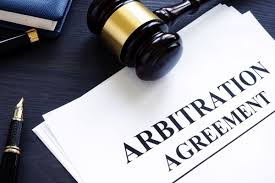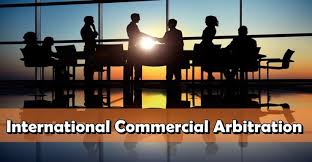Part Two:
Q1. Outline the relevant provisions applicable to this arbitration
The Laws of Arbitration of the International Chamber of Commerce, the London Court of International Arbitration Rules (LCIA) and the Rules of the Singapore International Arbitration Region (SIAC Rules) provide administrative rules sometimes in application in Singapore 1 . Rules of arbitration the SWF to arbitration may often pick separate, independent
principles of arbitration drawn up by organizations that are unwilling to conduct or supervise arbitrations. This description consists of the following three essential common threads between SWFs: government ownership and activity, development by the distribution of government funds, and functionality of long term investment.
7512 LAW International Commercial Arbitration Assignment.

SWFs are a combination of investment funds, so they are not just a function of government investment but also of public investment. The first Appendix to the Santiago Principles has complemented this concept and is reaffirmed. This statement is intended to examine SWFs from the viewpoint of conflict resolution that supports a regime that minimizes the need for substantial stabilization resources to be expended for policy purposes 2 . This regime
acknowledges that promoting the political investment of sovereigns mainly privileges capital in politics and inhibits diplomatic attempts, without enforcing an embarrassing regulatory framework. Global investments will help bind national economies and coordinate numerous sovereignty motivations, but host countries do have protection against the investment of Trojan horses because “foreign sovereigns have little obligation to behave just for economic purposes.
The SIAC administers much of his proceedings under its own arbitration rules even though, under any other rules decided by the SWF, it is capable of implementing arbitrations.
For the intent of: SIAC implemented provisions:
1.Commercial arbitrations and conciliation at national and international level;
2.Promoting negotiation and conciliation as an alternative to contractual conflict resolution litigation;
3.Developing a network of arbitrators and specialists on foreign arbitration and conciliation laws and procedures
The SIAC also tended to rend administrative resources, including the payment of payments by arbitrators, the arrangement of trials, the times and the register of pleadings, documentation and communications with the tribunal and the SWF.
Request and Interpretation scope
1.1 Where the SWF have agreed to refer their disputes, in accordance with the SIAC rules, to SIAC for arbitration or arbitration, they shall consider that they have agreed, pursuant to and administering the arbitration under this Rules, to SIAC.
1.2 This Rules shall enter into force on 1 August 2016 and apply to any adjudication that begins on or after that date, unless otherwise agreed by the SWF 3 .
The respondent was a director of a small company with a strong consumer load. The dissolution of his marriage and a near relative’s death placed him under pressures. He encountered the need to sell the family home owing to the financial difficulties. He was tested on depression by a doctor. His misbehaviour, such as his personality from his youth, a ‘psychological barrier’ around performing certain activities and anguish and anger at grievances, may have caused other causes. Together, he and his work and his client struggled so much for his work. According to the Section 70 of the Legal Practitioner’s Act 1981 (SA), Sammy Lee QC is able to hear and consider the challenge to his jurisdiction as sole arbitrator himself. It proposes a three-stage strategy that would encourage wellbeing and well-being among lawyers, firstly, enable extension of resources to the vulnerable and thirdly reconsider the nature of the working legal culture and its aggravating health condition for lawyers. It proposes a three-stage approach. Lawyers have also developed lawyers’ specific wellbeing
and counselling programs in different regions of the world.
Q2. What steps might be taken in relation to the professional misconduct by SWF’s lawyer.
Complaints are supported by a statutory declaration. A statutory declaration is the document affirming and confirming the truth of the Oaths and Declaration Act. False statements may result in penalties based on law. All complaints must by letter with a statutory declaration be forwarded to the Head of the Department of Conduct of the Singapore Law Society, cannot accept e-mail complaints. The letter of complaint should follow the formats set out in the guidelines as the format helps SWF to prepare the appropriate complaint with the necessary details. Complaints brought before the LSRA should be limited to law practice entity complaints in violation of the business provision and terminology relevant to the LSRA’s
licence/registration as set out in Legal Professions Act (Cap. 161) and the Law Profession (LPE) Rules 2015, such as the practice of Singapore law under a non-legal practice; selling law practices or pre-legal practices;
7512 LAW International Commercial Arbitration Assignment.

Complaints against particular lawyers in support of insufficient professional care in compliance with Article 75B of the Legal Professional Act (Cap. 161) 4 , or in respect of professional incompetence under Article 85(1) of the Lawyers Act (Cap. 161) (e.g. suspected dishonesty, deception, gross overcharges, false claims, leakage of client sensitive details to
his lawyer), actions against him, or against him 5
If SWF suffered financial losses due to the dishonesty of a lawyer or his staff, SWF may apply for compensation from the LSS Compensation Fund.
The Council must ensure that all the civil remedies for losses are exhausted against the lawyer or his staff with respect to the compensation request made by the Compensation Fund. If appropriate, the Council shall require that the alleged dishonesty of the lawyer or his staff be prepared by SWF on the police report.
The foregoing are important factors for SWF in the second phase: whether the SWF accept that the courts of a specific county are liable for any issue arising out of a settlement, where they agree that arbitration is to be carried out in a specified region, the wording or terms included in the contract, and the documentation used in a cross-company.
Despite comprehensive new laws of State, territory or territory, particularly in regard to lawsuits and punishment, common law tests in standard and ‘time honoured’ courts and administrative tribunals remain to decide whether ‘professional incompetence’ or ‘in satisfactory professional behaviour’ in this legislation is defiant. The exam for misbehaviour in Allinson versus General Council of Medical Education and Registration. The statute provided for various punishments, set up regulatory bodies for different constituencies and communicated diverse aims without including examples of such wrongdoing. Their growth occurred even when the legal profession was self-regulated and the goal was not to safeguard the rights of the public, but to uphold the quality of the profession. As far as the medical
profession is concerned, regulatory reforms of this sort have caused courts to remove the scandalous test of behaviour to judge the contractual professional mistake 6 .
7512 LAW International Commercial Arbitration Assignment.

It is not by new definitions, nor by comparison to the laws and policies underlying it, that courts and courts continue to appeal to these tests in the cases of lawyers’ disciplines. The tests introduce a distinct criterion for wrongdoing than the present law. Closely reading the disciplinary provisions in detail indicates that the disciplinary authority should not be allowed to infer that good integrity and skill professionals deem actions fairly “disgraceful or dishonourable” In comparison, the regulatory body would not need a statutory unsatisfactory professional behaviour to determine that the conduct dramatically fell short of expectations of
respectable and qualified professionals. The Authority can further conclude that the action, for instance, is severe enough to constitute legitimate professional wrongdoing and therefore ‘spread’ the rationale in order to be allowed to apply the appellation ‘disgraceful behaviour.’The method of the Authority’s rationale is skewed in implementing the common law
judgments and is a distorted emphasis from provisions that contain the disobedience of wrongdoing and opinions that establish the norm.
The Supreme Court in Re R held the opinion that this ambiguous term encompassed but was narrower than ‘professional misconduct’, as it adopted the legislative expression ‘professional behaviour’ in Law Society Act 1915 (SA). The expression (allegedly used) in the French Act
and considered in Re a Solicitor (ex parte Law Society), was used. It maintained that ‘unprofessional behaviour’ was not ‘involved in the usual definition of those words’ but that it included ‘behaviour that could reasonably be regarded in violating or depriving to a considerable extent the norms of professional conduct practiced or accepted by professionals
of good standing or integrity It did not actually contained in such actions.
On the other hand, In the case of the Corfu Channel (United Kingdom v. Albania), after delivery of the judgment on preliminary objection the Parties signed a special arrangement. An appeal was filed on 23 December 1906 in regard to the Arbitral Award Rendered by the King of Spain (Honduras v. Nicaragua) 7 , but the parties had achieved an accord on the
process for bring the case before the Judge. Where, on approval of the State to which the appeal is made, the claimant State proposes to found the jurisdiction of the Court, it must be transmitted to that country. However, it shall not be entered on or taken into the General Registry, even in the absence of agreement to the expertise of the Court for the requirements
of the case and then in regard of that State.
7512 LAW International Commercial Arbitration Assignment.

Under the section 82A, Disciplinary proceedings against Legal Service Officers and non- practising solicitors, YC will be justified if any arbitral award against YC were effectively upheld or if an award against YC is to be reversed. An application under this provision shall not be forwarded for a Legal Service Officer or non-practitioner to be disciplined, unless the
Chief Justice has given him leave to examine allegations of maledictions against a Legal Service Officer or non-practitioner concerned. The request shall be rendered ex parte by the initial calls and shall be followed by an assertion that the legal support provider or non- practice attorney is concerned with fraud. Along with this, in situations when, in compliance
with this section the Legal Service Officer or the non-practicing involved is considered by the Disciplinary Tribunal to be of a sufficient seriousness, the Chief Justice may appoint an advocate or solicitor or legal service officer to make calls for orders in the same phase by the Legal Service Officer or the non-practice solicitor con.
Excellent Assignment Help
We Aim At:
- Lowest Price.
- 100% Uniqueness.
- Assignment Fastest Delivery.
